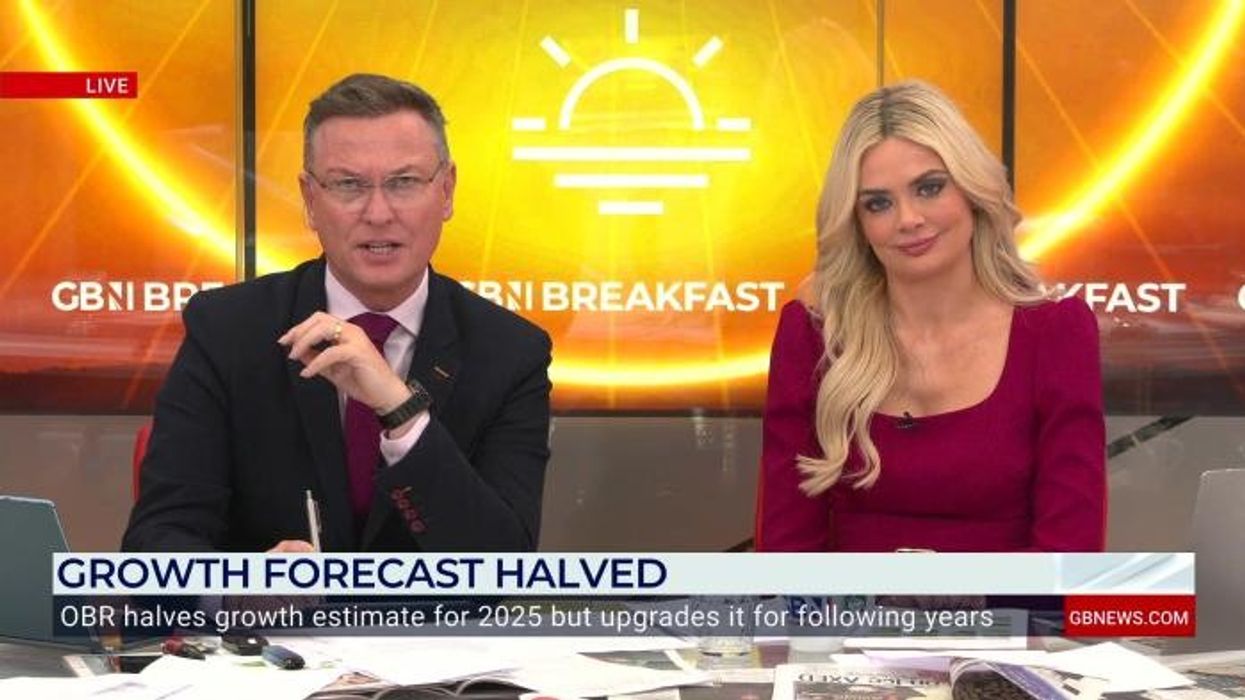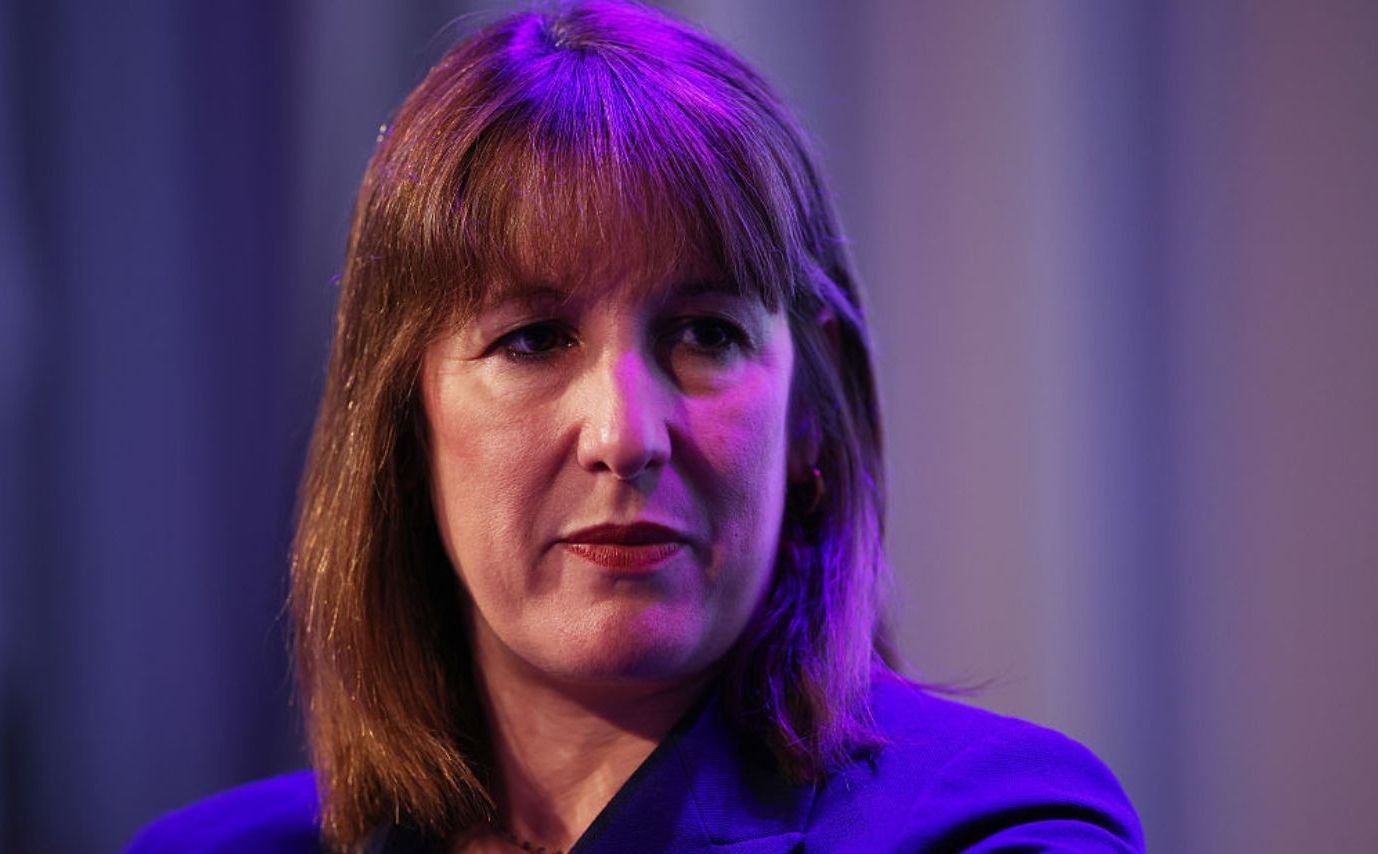Rachel Reeves faces £20bn budget hole as OBR prepares to downgrade economic outlook

Chancellor Rachel Reeves is grilled on her handling of the economy |
GBNEWS

A weaker forecast could force the Chancellor to find substantially more money to meet her fiscal rules
Don't Miss
Most Read
Latest
Chancellor Rachel Reeves is facing the prospect of a £20bn shortfall in her autumn budget plans as the Office for Budget Responsibility prepares to downgrade its economic forecasts.
The Treasury's independent watchdog is conducting its annual summer review of the economy's supply side, including productivity projections.
Sources familiar with the OBR's thinking told the Guardian that the watchdog was "uncomfortable" with its current productivity growth forecast being more optimistic than the consensus from other economic forecasters and wanted to "rein it in".
The potential downgrade threatens to derail the chancellor's tax and spending plans, even without any changes to the totals she announced in Wednesday's spending review. A weaker forecast could force her to find substantially more money to meet her fiscal rules.
The OBR has initiated its review process, with productivity being a key focus area. The watchdog has consistently overestimated productivity in previous forecasts, prompting concerns about its current projections.
Andy King, a former member of the OBR's budget responsibility committee now at consultancy Flint Global, said: "The reason why anyone in the Treasury who cares about this will be worried, is that the OBR is currently more optimistic than everyone else."
He added: "What can happen next? Either everyone else thinks, 'We're too pessimistic'; or the OBR thinks, 'We are too far away from the pack, there's been more bad news than good since March, we should revise down.' I think that's the expectation for many."

The OBR could signal its intentions as early as July 1, in its regular forecast evaluation report
|getty
The OBR could signal its intentions as early as July 1, in its regular forecast evaluation report.
Oxford Economics calculates that aligning the productivity forecast with average independent projections would reduce forecast GDP by 1.4 per cent at the end of the OBR's five-year forecast period.
This would require Reeves to raise taxes or cut spending by £20bn to maintain her fiscal rules and preserve her narrow £10bn headroom.
Such an adjustment would be roughly equivalent to increasing both the main and higher rates of income tax by 2p.
A more moderate approach, taking the middle ground between two alternative scenarios outlined by the OBR in its March economic and financial outlook, could still necessitate a £12bn correction.
James Smith, an economist at ING, warned: "Further downgrades to trend productivity growth projections, as well as net migration, mean the chancellor is likely in the red, before even considering the mounting pressures on the public purse."
Reeves has made clear that her fiscal rules are "non-negotiable", leaving her with limited room for manoeuvre. At her spring statement, she left herself on course to meet those rules with less than £10bn of headroom to spare, on a total budget for day-to-day spending of more than £1.3tn.
In a recent speech, the Chancellor stated: "Strong and transparent fiscal rules are an indispensable safeguard for working people and that is why my rules are non-negotiable."
 High interest rates and inflation have impacted Britons ability to navigate the economy | GETTY
High interest rates and inflation have impacted Britons ability to navigate the economy | GETTY This stance means that even if the economic outlook deteriorates, Reeves has repeatedly said that flexing her fiscal rules designed to provide certainty over UK public finances is not an option.
The Treasury has underlined the chancellor's determination to stick to these rules despite the potential challenges ahead.
Adrian Pabst, deputy director of the National Institute of Economic and Social Research, said the prospect of another significant forecast revision underlined the current instability of tax and spend policy.
"We're in this vicious circle where we've got these fiscal rules, then the OBR have to take a view, because that's their remit, that's their mandate; and then we're constantly speculating about what is going to happen at the next fiscal event," he said.

The Treasury is expected to highlight policies it hopes will boost productivity growth in the long term
| GETTYHe added: "It's not a good place for fiscal policy to be."
The Treasury is expected to highlight policies it hopes will boost productivity growth in the long term, including infrastructure investment, though the scale of this was already known before the OBR's last forecast in March.
Slower net migration following the government's recent white paper could also prompt the OBR to adopt a more pessimistic outlook.
More From GB News










